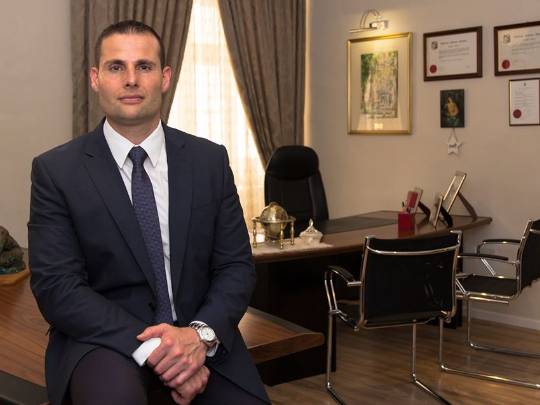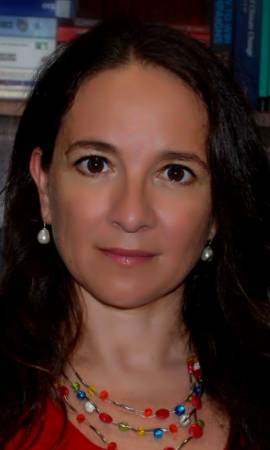Prime Minister Robert Abela was sworn into office on 13th January 2020, paving the way for a new Cabinet of Ministers and new ideas on how to tackle Malta’s most pressing issues. On the campaign trail to become leader of the Labour Party (PL) and Prime Minister, and after his victory, Dr Abela made a number of remarks where he shed light on his vision for the country, including commentary on workers’ salaries, housing, the environment and foreign workers.
The Malta Business Observer spoke with three of Malta’s leading economists to gauge the expert opinion on the economic impact of Dr Abela’s policy suggestions. In the first part of this two-part feature, Dr Abela’s commentary about improving workers’ salaries and the influx of foreign workers are explored.

Prime Minister Robert Abela
Improving workers’ salaries
In a debate with rival contender for the PL leadership Chris Fearne, Dr Abela had said he couldn’t “understand how so many businesses tell you that their profits have exploded in recent years but then say in the same breath that they cannot improve their workers’ salaries.”
He had added that the next step was to improve workers’ salaries, while also pushing for equal work for equal pay. He has since been quoted on TVM as opposing the idea of introducing a living wage, describing it as “unsustainable”.

Economist Marie Briguglio
Asked about Dr Abela’s initial commentary on improving workers’ salaries, local economist and University of Malta (UoM) lecturer Marie Briguglio remarked that the discussion is “long overdue”. Dr Briguglio added that it is “really the linchpin of many other ills including the rental affordability problem, work-life balance issues, and problems related to poverty.”
Turning to the outcome of such a discussion, she said that “fears of inflationary pressures across the board will of course be flagged. We will of course need to have that discussion,” she noted, adding that “we cannot bury this under the carpet any longer”.
Local economist and UoM visiting assisting lecturer JP Fabri said that following years of fast-paced economic growth, “corporate profits have grown at a faster rate than wages.” With an influx of foreign workers which has led to “suppressed wage growth,” cohorts of society did not benefit from the economic boom Malta has experienced, he said.
“It is central that the focus of growth is human and worker dignity, and that markets work for people and not the other way around,” Mr Fabri stressed. In this regard, Mr Fabri said he looks forward to “seeing the Government engaging with social partners to discuss the matter.”
Economist Gordon Cordina concentrated his response on Dr Abela’s call to push for equal work for equal pay, when the Prime Minister called out how unfair it is that factory workers employed by contractors get paid less for the same work colleagues earn for the same job.
Dr Cordina said it is “correct” for Dr Abela to call for this push, adding that “it is in the best interests of those employers who look forward to an economy offering industrial stability and sufficient skills. The solution to this is to foster high-value-added activities where this issue would naturally not arise.”
He cautioned that attempts at regulation and enforcement “risk being self-defeating in the long run, serving more to discourage the creation of jobs rather than result in the desired outcomes.”
Foreign Workers
Dr Abela had said that the influx of foreign workers has allowed certain employers to pay vulnerable workers below the minimum wage. “We need to better regulate foreign workers and enforce existing laws, and we cannot have a situation of people living on €500 a month,” he had said.
Dr Briguglio stressed that there is a need for enforcement of existing laws across the board, from foreign workers to traffic, from road building to crime. “Growing economically while institutions erode, while workers are exploited, and while citizens experience a loss in quality of life is not sustainable,” she said.
She used the analogy of building a tower with toy blocks, commenting that one may use all the blocks to build the tower as tall as possible, but it will eventually collapse. Dr Briguglio said that, alternatively, one may choose to use some of the blocks to build a sturdier base – it will ultimately lead to a shorter tower, however, it will be stronger.
Mr Fabri agreed that enforcement should be prioritised. He also added that “job agencies need to have the resources required to ensure that such abuses are not committed,” since “foreign workers have played and will continue to play a critical role in our economic model.”
Dr Cordina said he agrees with the importance of the contribution of foreign workers. He added, however, that it was important to address “the ecosystems and support infrastructures” surrounding the process of attracting foreign workers, stating that “a more gradual approach to immigration” was, perhaps, required.
“This can be said for the entire economy,” he continued, “as the influx of workers is nothing but a reflection of the pace of demand that we have experienced in recent years. An overall, more balanced, approach to growth and investment, across sectors, and over time, is therefore warranted.”
This article first appeared in the January edition of The Malta Business Observer.
Main Image:(Clockwise) Local economists Gordon Cordina, Marie Briguglio and JP Fabri
